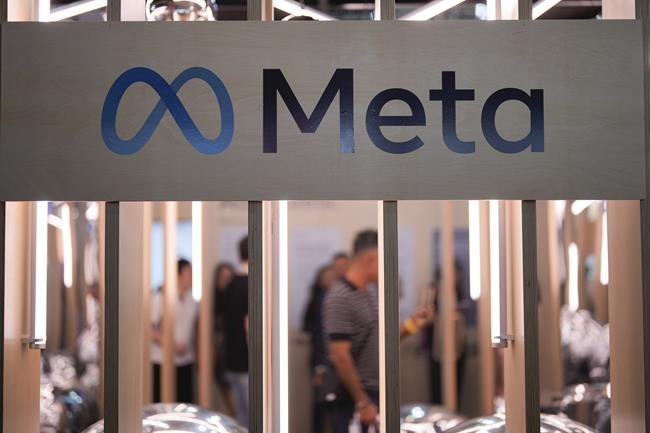MONTREAL — Pulling ads from Facebook could prod Meta toward inking deals with news outlets, though more momentum would be needed to push it over the edge, experts say.
The tactic adopted by several governments and companies in Canada this week might force the social media giant's hand if other countries and corporations follow suit in larger markets, said Sam Andrey, managing director of the Dais at Toronto Metropolitan University.
"I thought it was interesting how quickly a bunch of organizations and governments followed, and I'm sure there will be more," he said.
"The government of Canada by itself as an advertiser is not a huge material loss for them in the scheme of their total Canadian advertising. But if it kicks off a movement then you could see them reconsidering."
The federal government along with the province of Quebec, the City of Montreal and media companies Quebecor Inc. and Cogeco Inc. said yesterday they would suspend advertising on Facebook and Instagram as tensions with tech titans rise over the Online News Act, also known as Bill C-18.
The bill, passed last month but not set to take effect until late December, forces digital giants to pay media outlets for content they share or repurpose on their platforms.
The $10 million a year that Canada's heritage minister says it spends on advertising with Facebook and Instagram amounts to a tiny fraction of Meta's US$113 billion in ad revenue last year.
Nonetheless, experts say Meta may have to reconsider its strategy if larger companies as well as governments that are crafting similar legislation — including the United States, United Kingdom and Brazil — follow Canada's lead.
"Other democratic countries such as United States, Mexico, the EU could all take some similar principled steps," said Courtney Radsch, director of Center for Journalism and Liberty, a Washington, D.C.-based think tank.
"I support the idea of brands refusing to advertise on platforms that don't support the news because they don't want to be associated with disinformation and negative content."
The six-month period before the bill comes into effect gives Ottawa time to decide how to proceed with regulations. But a spokesperson for Meta said fine tuning won't be able to address the core changes the company wants to see.
"Unfortunately, the regulatory process is not equipped to make changes to the fundamental features of the legislation that have always been problematic, and so we plan to comply by ending news availability in Canada in the coming weeks,'' the spokesperson said in a statement Wednesday.
—With files from Tara Deschamps in Toronto
This report by The Canadian Press was first published July 6, 2023.
Companies in this story: (TSX:QBR.B, TSX:CGO)
The Canadian Press
